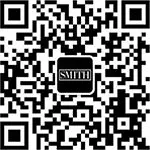Responsible Sourcing Policy
Smith respects and supports the protection of human rights for all. We recognize that the extraction, transportation, and trade in minerals in the conflict‐affected and high‐risk areas (CAHRA), including the Democratic Republic of the Congo (DRC) and adjoining countries may be contributing to armed conflict, human rights violations including forced labor, child labor and labor abuses, and environmental degradation.
As part of our global approach in respecting human rights, Smith is committed to the responsible sourcing of minerals used in the electronic products we distribute. We have implemented this Responsible Mineral Sourcing Policy (Policy) and expect all suppliers to adhere to the same high standards set in this Policy, Smith’s Supplier Code of Conduct, the Responsible Business Alliance (RBA) Code of Conduct and all other applicable laws.
As a distributor of electronic and computer products, Smith is a “downstream company” as defined by the OECD, and thus we must rely on our suppliers to provide proper verification of the country of origin and source of tantalum, tin, tungsten, gold or their derivatives (also known as the “Conflict Minerals”), and cobalt from the CAHRA. We recognize the complexity of this issue and are committed to collaborating with our customers, our supply chain, and industry wide initiatives to increase transparency regarding the origin and traceability of these minerals contained in our products and to promote responsible sourcing of these minerals. We have implemented the following in support of this Policy and expect all suppliers to abide by the same:
- We conduct business in accordance with our Code of Conduct, as may be periodically updated.
- We establish and maintain a policy on responsible minerals sourcing.
- We support the goals of the RBA’s Responsible Minerals Initiative (RMI) to identify, reduce and eventually eliminate the conflict minerals that finance or benefit conflict or human rights violations.
- We exercise corporate due diligence on the source of these minerals and use the most current RMI Conflict Minerals Reporting Template (CMRT) to report the information collected.
- We work to request the removal of high risk or non‐conformant smelters and refiners from the supply chain; and
- We extend these expectations throughout our supply chain.
- We expect our suppliers to assure their compliance with applicable export control and economic sanctions laws and regulations of the US, EU, Singapore, Hong Kong and other applicable jurisdictions, including but not limited to the UFLPA. At our request, suppliers are expected to:
- Certify that forced labor was not employed in any stage of manufacture of the merchandise or any component thereof and that Suppliers do not purchase or otherwise obtain (directly or indirectly) any inputs (e.g., raw materials) used to produce the goods sold to Smith from any entities (a) located in a country, region, or territory subject to import restrictions by U.S. Customs and Border Protection (“CBP”) or the customs authority of other relevant jurisdictions; or (b) subject to CBP’s or the custom authority of other relevant jurisdictions’ import restrictions.
- Provide information to Smith with respect to the providers of the inputs (including downstream suppliers) used to produce the goods, including, but not limited to, purchase orders, invoices, bill of ladings, transportation documents, importation documents, pictures of raw materials, etc.
- Respond to any Smith due diligence inquiries or requests for information made by Smith to ensure the compliance of the Suppliers goods with U.S. Customs and Border Protection or other customs authorities’ Suppliers shall fully cooperate in any forced labor related enforcement action brought by CBP or the customs authority of other relevant jurisdictions.
We will periodically review this policy and continue to work with our customers, supply chain, and industry peers to support necessary improvements to enable responsible sourcing.
您可通过以下三种方式,轻松关注Smith微信公众号:
- 1. 扫描二维码
- 2. 微信搜索“smithasia”
- 3. 微信搜索“Smith”账号”
